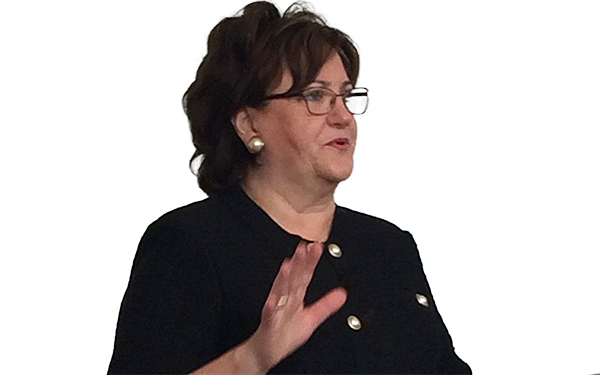NY’s Top Officials Demand E. Ramapo Superintendent Step Down – But That Won’t Solve District’s Problems

When the head of New York’s top education policy board calls for a single schools superintendent to step down — out of the nearly 700 in the state — it warrants due attention.
And, accordingly, a whole lot of attention has been focused of late on New York State Regents Chancellor Merryl Tisch’s unusual urging for East Ramapo Superintendent Joel Klein (no relation to the former New York City schools chancellor) to resign.
The attention follows the state’s severe criticism of district leadership, a failed state bill that would have placed a powerful, unprecedented outside monitor in East Ramapo and protest rallies outside Klein’s Rockland County home by dozens of parents deeply frustrated with the lack of services for their children. The diverse and troubled district 35 miles north of New York City serves mostly minority, immigrant and low-income students.
East Ramapo’s Board of Education, controlled by men elected by the Ultra-Orthodox community, has indicated it will heed those calls and initiate a search process for a new schools chief, though a district spokesman declined to comment Tuesday on what the timeline will be. Such searches typically take at least six months to a year.
Whether Klein, who is entering the final year of his contract, is replaced in six weeks or six months, however, may not be enough to steer from the brink a district whose unusual dynamics and dire circumstances have attracted national attention.
While state education officials — including Tisch and newly appointed state Education Commissioner MaryEllen Elia — have promised to take action to help East Ramapo before school starts in September, specifics have been scarce.
The Board of Regents, which Tisch heads, wrapped up their monthly meeting Monday — their last formal gathering until September — with a discussion of the ongoing monitoring of the district’s strained budget, inadequate instruction for its sizeable English Language Learner population and illegal special education placements, but took no further action.
Judith Johnson, the Regent who represents East Ramapo in the Lower Hudson Valley region, did not return a message seeking comment Tuesday.
A new superintendent for East Ramapo “will not affect the level of change that’s needed” because the school board, not the superintendent, calls the shots on policy decisions for the district, said Harry LeFevre, a longtime Rockland County educator who worked there as an administrator in 2011-12 and a teacher from 1986-1992.
“You need a new superintendent (in East Ramapo) but then you also need to change the configuration of the board, because if you don’t have a change in the board, you’re not going to have a change in the direction of the district,” LeFevre said.
While the board can only act on the recommendations of the superintendent, the superintendent serves at the pleasure of the board and can be hired – or fired – based on the board’s assessment, he said.
Any newcomer superintendent in East Ramapo will face the enormous challenge of navigating the contentious relationship between the public school community and the school board, which is seen by many in the community as secretive, immune to public outcry and more concerned with shifting funds to the roughly 24,000 East Ramapo students who attend more than 100 different private schools, most of them yeshivas.
“It’s like, who in his or her right mind will want to take that on?” LeFevre said, predicting that Klein’s replacement will come from outside the district, and perhaps outside the state, rather than from within.
The school board maintains it represents the interests of all students and simply needs more funding but a temporary state monitor appointed by Gov. Andrew Cuomo and former state Education Commissioner John King last year found the board has favored the concerns of the private schools, steering taxpayer money their way while slashing public school budgets.
“At the heart of the district’s crisis is a governance problem” that stems from its unique demographics and the school board’s makeup that “reflects and magnifies this demographic,” Greenberg said.
And as the private school population continues to grow — the Ultra-Orthodox community is among the fastest growing in New York — the public funds needed to support those students’ special education, transportation and textbooks, all services they’re entitled to by law, will also increase.
So while Tisch may have called out Klein publicly and the East Ramapo parents might feel triumphant to see him go, it will not change what’s at “the heart of the district’s crisis.”
Assemblyman Kenneth Zebrowski, D-Rockland, said state education officials have reviewed his request to appoint a monitor with limited authority to oversee day-to-day operations in the district. While that person wouldn’t have veto power over the board, as proposed in the failed oversight bill, the monitor would serve as a “point person” for the community, could hold public hearings and review district documents, according to Zebrowski.
The state has recommended community leaders work harder to improve relationships between the public and the board, and a monitor could go a long way toward meeting that goal.
A monitor appointed for six months or year could also report back to the state and recommend needed steps in advance of the 2016 legislative session, when he and his colleagues intend to renew their push for the more sweeping oversight bill.
Zebrowski, an attorney, said he believes the state has the authority to do so under current education law and pointed to its June 2014 appointment of Greenberg as the precedent.
“I’m hoping that the Board of Regents meeting was a prelude to more specific action in the next few weeks,” he said Tuesday. “I certainly want to see something happen before the beginning of the school year.
Get stories like these delivered straight to your inbox. Sign up for The 74 Newsletter

;)
